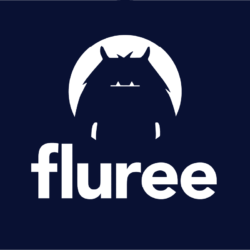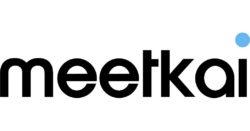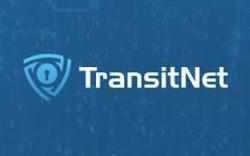Top 5 Blockchain Startups And What Their CEO’s Have In Mind
While venture capital investment has decreased in many areas, it has increased in the blockchain industry. This has given blockchain startups a boost (AI). NFT application cases are expanding, and blockchain and other upcoming technologies like 5G, augmented reality (AR), virtual reality (VR), and artificial intelligence are coming together.
Investors continue to pump billions of dollars into blockchain and cryptocurrency firms as market capitalization is expected to soar in the coming years. According to Gartner, the value of blockchain startups will rise, reaching $176 billion by 2025 and $3.1 trillion by 2030. In addition, Grand View Research predicts that between 2022 and 2030, the global market for blockchain technology will expand at a rate of 85.9%.
Despite the coldest crypto winter the blockchain industry has ever experienced, its potential hasn’t stopped growing. Investors continue to tap into the limitless possibilities of blockchain, expanding its applicability far beyond cryptocurrencies, NFTs, and any other single unit as the metaverse makes more significant inroads into the larger company.
According to a PwC assessment on the future of the blockchain sector, it is a technology enabler with an unmatched capacity to enhance enterprise business operations while concurrently reducing the cost of trust. First movers and the firms they support will benefit from these developments with a higher return on investment (ROI).
An industry that is constantly expanding
According to a Statista article citing an IPlytic survey, the number of blockchain startups has continued to grow globally. According to the study, 777 blockchain firms were established worldwide in 2017 compared to only 66 in 2012. According to a further Statista analysis, blockchain companies raised $2.6 billion globally in the first quarter of 2021, exceeding the total amount the sector increased in 2020.
How do blockchain startups fare in the face of much funding? Which startups compete to advance and provide consumers and business leaders with more? The five blockchain startups listed below are well-positioned to dominate the market over the coming few years based on their growth trajectories, service offerings, innovation, and market capabilities. These businesses service the entire span of the blockchain sector, from cryptocurrencies to decentralized finance (DeFi), NFTs, metaverse, and Web3, as was to be expected.
Top 5 Blockchain Startups and What Their CEO’s Have In Mind
Fluree : Created in 2016
Entrepreneur(s): Brian Platz
United States of America, North Carolina
Amount invested thus far: $6.5 million
Open-source graph database Fluree ensures data integrity, offers transparency into data provenance, allows for safe data collaboration, and supports linked data insights bringing data into the blockchain arena. Fluree’s CEO, Brain Platz, stated that the company exists to cover the requirement for operational data management for Web3 apps. Fluree aims to dominate the generic blockchain application market by concentrating on developing the Web3 data management infrastructure. At the same time, decentralized file systems such as IPFS handle distributed storage, and public blockchains like Ethereum handle application logic.
To help businesses create blockchain apps, Fluree offers a valuable and well-known platform. Enterprise applications need extensive data storing and retrieval, which typical L1 or L2 blockchains are not designed for. This applies to storing metadata related to supply chain modifications or user data for a client’s web application. For blockchain applications, it is either too expensive or not viable to put all database functionality on Ethereum or Polkadot. Therefore, blockchain is used by most firms as yet another data silo, Platz claims, with their data and metadata being stored in plain old databases. The initial goal is defeated by the lack of comprehensive data management, which raises the cost and complexity of the systems that this blockchain was designed to streamline.
Platz argued that the organization needs a more sophisticated solution, and Fluree provides it. According to him, Fluree offers the following advantages to the blockchain sector:
Data Integrity: Using encryption, every piece of data, including its provenance and creator, is wholly verifiable and tamper-proof. In networks, optional decentralization promotes network integrity and transparency.
Data Security: Fluree enables a single security model that travels with your data beyond borders and scales with your dataset forever by storing specific read and write authorization logic as co-resident data.
Data traceability: Fluree’s timestamped ledger gives programs access to and understanding every moment in time, enabling apps to thoroughly follow the journey of assets as they change hands or pass through time.
Because it may be centralized, federated, or decentralized to suit data governance requirements, Fluree claims it sets itself apart from competitors. Fluree promises to offer enterprise players more excellent value for their money with a product that can run on any machine and adaptable “edge” query servers that can be scaled linearly to meet any level of enterprise demand. Additionally, the program or user can split, merge, and scale up or down its ledgers as necessary. As a result, Fluree exposes the ledger data in a resource description framework accepted in the industry as a blockchain-backed semantic graph database.
Platz claims that blockchain is a crucial advancement in enterprise technology as more enterprises engage in business dealings with outside parties. In the following five years, he continued, blockchain would become as pervasive as cloud computing, encouraging more incredible digital innovation for businesses wanting to maintain competitiveness.
As more organizations and enterprise players look for ways to ensure secure data sharing over the blockchain, Fluree is building an exciting customer list that includes the Department of Defense (DoD) and the U.S. Department of Education. The business, which has more than 100,000 downloads, will shortly release a cloud version, entering a market Gartner estimates to be worth $500 billion.
Although Fluree withheld its valuation, the business raised $4.7 million in a seed round in 2019.
Established in 2016
Kirill Suslov is the founder.
Central Office: The Netherlands
Amount invested thus far: $7 million
TabTrader, a cryptocurrency trading platform, has a significant decentralized finance investment (DeFi). TabTrader offers trading on around 40 exchanges and supports more than 12,000 digital instruments, providing users with access to various trading instruments. TabTrader is focused on connecting end-users to numerous businesses and enabling them to make trades in real-time through its app.
The CEO of TabTrader, Kirill Suslov, stated in an interview that DeFi, which stands for all of the options to invest your money without trusting a counterparty, is the most intriguing trend in the blockchain sector. Blockchain promotes the zero-trust philosophy everywhere, not just in the financial industry.
Suslov stated that “just a few use cases, when it’s crucial not to trust the counterparty, have seen the application of blockchain technology. Enterprise ecosystems, in contrast, typically consist of agents who trust one another. There are hence relatively few such use cases.
According to TabTrader, its DeFi aggregation solution enables anyone to manage their investments and accounts from a solitary mobile interface. With the idea that DeFi should be portable and flexible, TabTrader seeks to expand personal computer browser extensions’ ability to access DeFi.
Suslov said that to redefine investment, even on a personal level, TabTrader has depended chiefly on having a fantastic product, the aspect of vitality, and app store optimization. TabTrader shares the organizational culture’s conviction that everyone has the potential to achieve financial independence.
“One of our customers gave up his work in 2017 and has since been able to provide for his family by earning profits from trading with TabTrader. This is just one of many examples that keep our team moving forward. Every morning, we get ready to make investing possible for everyone around the globe.
With over 300,000 active users and 15% of its user base giving TabTrader five stars, it is a blockchain firm to keep an eye on.
MeetKai: Created in 2018
Weili Dai and James Kaplan are the founders.
Headquarters: USA, California, Los Angeles
Funding received to date in total:
MeetKai thinks maximizing accessibility and incorporating artificial intelligence is essential for the metaverse (AI). The startup has begun to map the entire planet inside its virtual environment to extend physical reality into the metaverse. With the ability to comprehend and retain genuine speech and negation queries, MeetKai claims to have the most significant AI on the market. This characteristic enables its open and inclusive metaverse. James Kaplan, co-founder and CEO of MeetKai, envisions a metaverse that will be open to all users, and in July, he introduced the first browser-based metaverse. The metaverse, according to Kaplan, is not about building a brand-new reality; instead, it is about improving the virtual with useful real-world features.
Without question, the metaverse is positioned to be the next big thing. According to Bloomberg Intelligence and McKinsey, the metaverse industry will reach over $800 billion by 2024 and $5 trillion by 2030, respectively. Unfortunately, many real-life experiences that people like to have today are either too expensive or unfeasible for various reasons, including physical inaccessibility. MeetKai claims it is working to close this gap by creating its metaverse.
“Apps’ form factors have limitations. Their deployment objectives always result in silos with poor compatibility. According to Kaplan, we can offer experiences that are not only beyond what is achievable with an app but also advantages over comparable real-world experiences by designing in the browser and utilizing AI. “Focusing on any factor, we can make this technology widely available at significantly lower costs.”
16 languages are supported by MeetKai’s AI, ready for use in the vast and straightforward MeetKai metaverse. While other businesses create metaverses, like Roblox, Decentraland, and Sandbox, Kaplan thinks MeetKai’s AI expertise is a game-changer that sets it apart from competitors.
Virtually Human Studio (VHS): Created in 2019
Headquarters: Australia’s Victoria
Chris Ebeling, Chris Laurent, Geoffrey Wellman, and Rob Salha are the founders.
Amount invested thus far: $20 million.

Virtually Human Studio (VHS) claims to be “pioneering the space, building immersive entertainment experiences that harness blockchain technology” as the importance and appeal of the metaverse continue to rise. The business uses cutting-edge, next-generation Web3 experiences to enable people and groups to understand the metaverse in their unique ways.
Their main game, ZED RUN, was the first of its type to be created using blockchain technology, providing a concrete example of how this technology can be applied to create a product that customers all over the world will love. ZED RUN has introduced the “sport of kings” into the metaverse by drawing inspiration from the real world of horse racing and integrating it with Web3 technology. Owners of virtual racehorse NFTs can now participate in skill-based gameplay. With over $250 million invested on the platform and secondary markets and the sale of racehorses valued at $20 million in four hours, ZED RUN is renowned for offering a fundamentally new method of value generation through ownership and enjoyment.
ZED RUN and its community have drawn followers of horse racing, sports, video games, and Web3 by democratizing racehorse ownership. Owners of the ZED RUN stable have participated in almost two million races and have collected over $40 million in awards. The game is a pioneer in the play-and-earn market and has demonstrated Web3’s capacity to produce distinctive, engaging digital experiences.
“Within VHS’s portfolio, we are creating ground-breaking technology driving the Web3 revolution across a vast network of assets, games, and entertainment experiences. The growth of NFTs empowers people to forge their identities in an open environment. According to Chris Laurent, co-founder, and CEO of VHS, people may create intriguing things in new worlds and control their own experiences.
He added that some of the business’s APIs had been made available to the general public so that they could be built upon by the blockchain community.
The studio has worked with well-known companies, including Budweiser, NASCAR, The Victoria Racing Club/Melbourne Cup, and Netflix, to distribute genuine digital treasures using on-chain blockchain. With the support of some of Silicon Valley’s most prestigious venture investors, it appears that the NFT entertainment industry will continue to grow over the coming years.
Founded in 2020: TransitNet
Eric Jackson and Christopher Grey are the founders.
United States of America, California
Amount invested thus far: $2.5 million
With transient, investors can convert cryptocurrency from a bearer asset to a registered asset, according to the company’s promises. Additionally, it allows customers to generate a secure, independently verifiable record of ownership for cryptocurrency wallets. The core features are identifying who owns a cryptocurrency, confirming who owns a wallet, and securely sharing that claim of ownership with a third party.
TransitNet is a service that improves security rather than taking ownership of the cryptocurrency asset or acting as a wallet. TransitNet focuses on the flow of information to enable safe transactions and open up new use cases for cryptocurrency since it is not required to facilitate the flow of payments.
“Traditional financial services will continue to evolve as a result of blockchain. Traditional financial services won’t disappear because of DeFi, but they will have to change to coexist. That is already occurring, as we can see. Banks are embracing blockchain and cryptocurrency. We see a chance for TransitNet to play a significant role in this market. According to the CEO of the company, Eric Jackson, “TransitNet, for instance, facilitates home mortgages by allowing people to verify their creditworthiness based on their crypto assets and to pay with crypto, which they can prove ownership of.
1/ It’s been an exciting few months at @TransitNetApp – between building new features, working with our alpha testers, & now the latest news… We’re launching a new financing round, and we have room for members of our community to participate! https://t.co/DHyL9iKgfs
— Eric M. Jackson 🇺🇸 (@ericmjackson) August 18, 2022
TransitNet will be seeking to take a piece of the $325 billion global fintech business, which is already a $45 billion industry for financial infrastructure for cryptocurrencies.
Stay informed with daily updates from Blockchain Magazine on Google News. Click here to follow us and mark as favorite: [Blockchain Magazine on Google News].
Get Blockchain Insights In Inbox
Stay ahead of the curve with expert analysis and market updates.
latest from tech
Disclaimer: Any post shared by a third-party agency are sponsored and Blockchain Magazine has no views on any such posts. The views and opinions expressed in this post are those of the clients and do not necessarily reflect the official policy or position of Blockchain Magazine. The information provided in this post is for informational purposes only and should not be considered as financial, investment, or professional advice. Blockchain Magazine does not endorse or promote any specific products, services, or companies mentioned in this posts. Readers are encouraged to conduct their own research and consult with a qualified professional before making any financial decisions. The featured image used is just a creative depiction of the title and it does not intend to hurt sentiments of any person or institution. If it hurts anyone sentiments, please do not hesitate to reach out to Blockchain Magazine.

 Bitcoin
Bitcoin  Ethereum
Ethereum  XRP
XRP  Tether
Tether  Solana
Solana  Dogecoin
Dogecoin  USDC
USDC  Cardano
Cardano  Lido Staked Ether
Lido Staked Ether  TRON
TRON  Chainlink
Chainlink  Avalanche
Avalanche  Wrapped stETH
Wrapped stETH  Sui
Sui  Wrapped Bitcoin
Wrapped Bitcoin  Stellar
Stellar  Toncoin
Toncoin  Hedera
Hedera  Shiba Inu
Shiba Inu  Polkadot
Polkadot  WETH
WETH  LEO Token
LEO Token  Bitcoin Cash
Bitcoin Cash  Litecoin
Litecoin  Hyperliquid
Hyperliquid  Bitget Token
Bitget Token  Official Trump
Official Trump  Uniswap
Uniswap  Pepe
Pepe  Wrapped eETH
Wrapped eETH  USDS
USDS  NEAR Protocol
NEAR Protocol  Ethena USDe
Ethena USDe  Aave
Aave  Aptos
Aptos  Internet Computer
Internet Computer  Ondo
Ondo  WhiteBIT Coin
WhiteBIT Coin  Ethereum Classic
Ethereum Classic  Cronos
Cronos  Monero
Monero  Mantle
Mantle  POL (ex-MATIC)
POL (ex-MATIC)  Render
Render  Dai
Dai  Algorand
Algorand  Bittensor
Bittensor  MANTRA
MANTRA 








